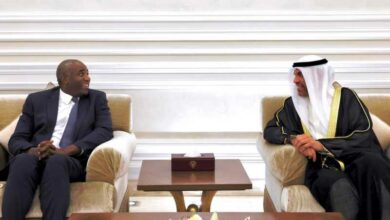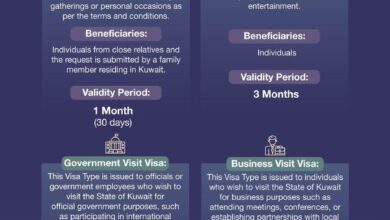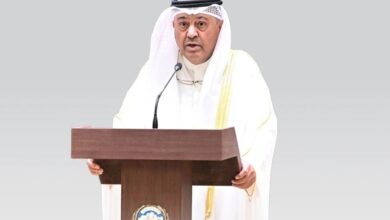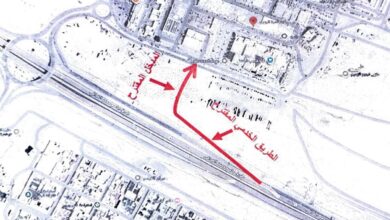Kuwait joins global celebration for International Literacy Day
Kuwait allocated 12.6% of its 2023/2024 budget to education, reducing the 2024 illiteracy rate to 0.14% for males and two percent for females.

• Kuwait’s substantial investment in education has positioned it as a leader in literacy among Gulf and Arab countries.
Kuwait joins the global community and international organizations on Sunday to celebrate International Literacy Day, observed annually on September 8.
Kuwait has achieved significant progress in literacy, positioning itself as a leader among Gulf and Arab countries, according to Al Jarida newspaper.
As part of Kuwait’s ongoing efforts to improve education and eradicate illiteracy, which began during its period of renaissance, the country allocated approximately 12.6% of its state budget for the fiscal year 2023/2024 to education. In 2024, the illiteracy rate was about 0.14% for males and 2% for females.
The celebration of International Literacy Day serves as a reminder of the importance of literacy as a matter of dignity and human rights. It also seeks to promote literacy as a key factor in building more sustainable and literate societies.
This day emphasizes the need to provide basic reading skills for all and equip individuals with advanced literacy skills through lifelong learning. Literacy is not only a human right but also the foundation for learning, well-being, and improved livelihoods, playing a crucial role in achieving sustainable development.
On October 26, 1966, the United Nations Educational, Scientific and Cultural Organisation (UNESCO) designated September 8 as International Literacy Day, with the goal of reminding the global community of literacy’s importance for both individuals and societies.
From the early days of its renaissance, Kuwait recognized the value of education, giving it the highest priority and facilitating its advancement. Alongside this, Kuwait also focused on providing educational opportunities for older generations who had missed formal schooling. In 1957, the Ministry of Education established literacy and adult education centers across the country.
Since gaining independence, Kuwait has enacted laws to regulate the educational system, most notably Law No. 11 of 1965 on compulsory education. This law states that “education shall be compulsory and free for all Kuwaiti children, male and female, from the primary to the intermediate level, with the government responsible for providing schools, books, teachers, and the necessary resources to ensure the success of compulsory education.”
Kuwait recognized that achieving advanced education and high-quality outcomes requires significant investment in the education sector. As a result, education at all levels has been allocated a substantial portion of the state budget, making Kuwait’s spending on education among the highest globally.
Kuwait’s efforts to eradicate illiteracy among its population have progressed through three phases. The first phase, from 1950 to 1957, focused on employees in schools, hospitals, and workers in the Workers’ Cultural Centre, as well as police training centers and army camps, with the aim of improving performance and enhancing their skills.
In the second phase, from 1957 to 1981, Kuwait established its first two literacy centers for men in 1958 and the first two literacy centers for women in 1963.
To accommodate learners who completed the literacy stage and wished to continue their education, the first classes for the first year of middle school were opened in the academic year 1959/1960 for those who had passed the fourth grade primary exam at the literacy centers. Meanwhile, middle school curriculum instruction for women began in the academic year 1966/1967.
In 1967/1968, the first evening secondary center was established at Kefan High School to welcome students who had completed middle school in adult education centers, as well as individuals who were unable to continue their studies in morning schools due to work commitments.
In the same year, first-grade secondary classes were introduced at some women’s centers. The process of growth and development continued, with the expansion of classrooms, eventually completing secondary-level transfer classes with both literary and scientific branches.
The continued focus on eradicating illiteracy entered its third phase with the issuance of the Literacy Law in 1981, which consisted of 23 articles aimed at eliminating illiteracy once and for all. The number of literacy centers increased to 100 across all governorates.
In 1982, a ministerial decision officially defined an ‘illiterate’ as “any individual over the age of fourteen who has not reached a level equivalent to the fourth grade of primary school and is not enrolled in primary schools.”
Education at literacy and adult education centers was not limited to Kuwaitis or Gulf Cooperation Council citizens; it was also extended to residents of other nationalities, ensuring education for all. Literacy classes also catered to people with special needs.
Over the past years, Kuwait has successfully achieved the Millennium Development Goal of ensuring that all males and females complete primary school. The country has also excelled in providing modern books, curricula, electronic devices, school buildings, nutrition, and health care in schools.
Kuwait is making significant progress in literacy, as reflected in its National Development Plan, “New Kuwait 2035,” which incorporates all elements of sustainable development, particularly in the areas of human capital development and providing inclusive, equitable, and high-quality education for all.















